We have been creating opportunities for exploration and collaboration for more than 150 years. Whether it’s major scientific awards or innovations that improve the care of patients, each achievement ignites a renewed energy for the future of what's possible.
Explore the following achievements:
Nobel Prize
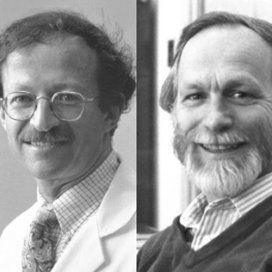
1989
J. Michael Bishop, MD, & Harold Varmus, MD
For discovery of proto-oncogenes, showing that normal cellular genes can be converted to cancer genes.
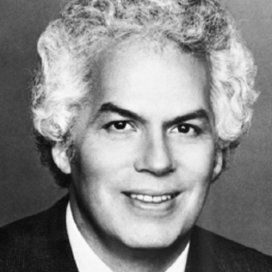
1997
Stanley Prusiner, MD
For discovery of prions, an entirely new biological principle of infection and disease. Prions cause degenerative brain disorders, including Creutzfeldt-Jakob disease in people and mad cow disease.
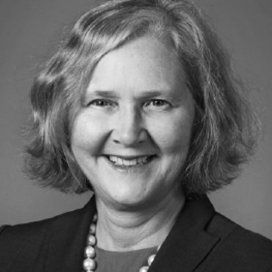
2009
Elizabeth Blackburn, PhD
For discovery of an enzyme, called telomerase, that plays a key role in normal cell function as well as in cell aging and most cancers. She shared the award with Carol W. Greider and Jack W. Szostak.
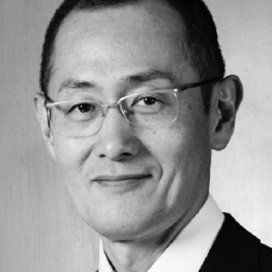
2012
Shinya Yamanaka, MD, PhD
For discovery of how to transform ordinary adult skin cells into cells that, like embryonic stem cells, are capable of developing into any cell in the human body. He shared the prize with John B. Gurdon.
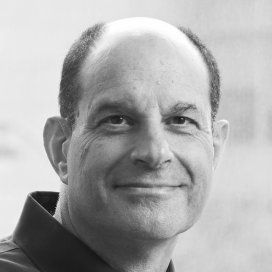
2021
David Julius, PhD
For the discovery of receptors for temperature and touch, in conjunction with Ardem Patapoutian.
Lasker Awards
Since 1945, The Lasker Foundation has recognized the contributions of scientists, physicians and public servants who have made major advances in the understanding, diagnosis, treatment, cure, and prevention of human disease. UCSF has won a total of 13 awards, including the Albert Lasker Basic Medical Research Award and Lasker-DeBakey Clinical Medical Research Award.
-
2016
-
2014
-
2012
-
2009
-
2006
-
1994
-
1994
-
1991
-
1982
-
1980
-
1962
-
1951
Shaw Prizes
The Shaw Prize, widely regarded as the "Nobel of the East," was established in 2002 to honor individuals who have achieved significant breakthrough in academic and scientific research or applications and whose work has resulted in a positive and profound impact on mankind.
-
2017
-
2014
-
2010
-
2008
-
2004
-
2004
National Medals of Science
Bestowed by the President of the United States, the National Medal of Science honors scientists in the fields of the physical, biological, mathematical, engineering, social and behavioral sciences. It was established by Congress in 1959.
-
2014
-
2009
-
2003
-
2001
-
1990
Breakthrough Prize in Life Science
The Breakthrough Prize in Life Sciences honors transformative advances toward understanding living systems and extending human life. The prize was founded in 2013 by tech titans, including Sergey Brin, Anne Wojcicki, Mark Zuckerberg and Yuri Milner and launched at UCSF.
-
2025
-
2020
-
2018
-
2013
Esteemed Memberships
The number of UCSF faculty who have been named members or fellows of the following prestigious scientific honorary organizations:
-
81
American Academy of Arts and Sciences
-
68
American Association for the Advancement of Science
-
22
Howard Hughes Medical Institute
-
114
National Academy of Medicine
-
62
National Academy of Sciences
-
14
The Royal Society
U.S. News Best Graduate Schools
- Tier 1, School of Medicine, Primary Care (last ranked in 2024)
- Tier 1, School of Medicine, Research (last ranked in 2024)
- #12 (tie) School of Nursing, Master’s Program (last ranked in 2024)
- #2 (tie) School of Pharmacy (last ranked in 2024)
- #9 (tie) Graduate Program in Biological Sciences (last ranked in 2022)
2024-25 U.S. News Best Hospitals Survey
- #1 (tied) in California
- #1 San Francisco Metro Area
- Best in the West for Neurology and Neurosurgery
- Best in Northern California for Cancer
2024-25 U.S. News Best Children’s Hospitals Survey
- 11 pediatric specialties nationally ranked
- Best in Northern California:
- Cancer Care
- Cardiology and Heart Surgery
- Urology
2023 National Institutes of Health Research Funding
- #3 most-funded university
- #1 most-funded public university
- #1 School of Medicine
- #1 School of Pharmacy
- #1 School of Dentistry
- #3 School of Nursing
- #3 Graduate Division
2024-25 U.S. News Best Global Universities
- #15 Overall
- #2 in Oncology
- #2 in Neuroscience and Behavior
- #4 in Biology and Biochemistry
- #4 in Cell Biology
- #4 in Clinical Medicine
- #4 in Molecular Biology and Medicine
- #8 in Immunology
- #8 in Radiology, Nuclear Medicine and Medical Imaging
- #10 in Public, Environmental and Occupational Health
- #11 in Surgery
- #13 in Infectious Diseases
- #13 in Microbiology
- Discovered that B cells orchestrate the inflammation of myelin that causes multiple sclerosis, leading to a new B-cell targeting therapy that is effective for both relapsing-remitting and primary progressive forms of the disease. (Stephen Hauser, MD, 2008 and 2016)
- Identified receptors in cells of the peripheral nervous system that play key roles in the body’s ability to sense heat and cold, providing major insights into how the body experiences pain – findings that are valuable for development of pain therapeutics. (David Julius, PhD, 2002 and 1997)
- Determined that chronic pain is a medical condition and not just a symptom, leading to improved strategies of management. (Christine Miaskowski, RN, PhD, 2001)
- Discovered genes that can double the lifespan of the roundworm C. elegans. These genes encode components of a conserved hormone signaling pathway, and have now been linked to exceptional longevity in flies and mammals, including humans. (Cynthia Kenyon, PhD, 1993)
- Discovered the regulatory machinery of the "unfolded protein response," a signaling pathway that controls protein folding in the cell. Improper protein folding is the biological basis for numerous diseases, including cancer, diabetes and neurodegenerative disorders. (Peter Walter, PhD, 1993)
- Identified oral lesions as one of the first signs of AIDS, leading to major research breakthroughs in the oral aspects of AIDS and the role of viruses in oral lesions. (John Greenspan, BDS, PhD; and Deborah Greenspan, BDS, DSc, 1984)
- Co-discovered the AIDS virus – known as HIV, human immunodeficiency virus – originally calling it AIDS-related retrovirus (Jay Levy, MD, 1983), and discovered that the virus could be transmitted through blood transfusions, leading to new methods of screening donors. (Arthur Ammann, MD; Diane Wara, MD; and Morton Cowan, MD, 1982)
- Co-discovered embryonic stem cells in mice and coined the term embryonic stem cells, laying the groundwork for worldwide research on human embryonic stem cells to treat disease. (Gail Martin, PhD, 1981)
- Reported for the first time that elevated blood sugar caused abnormal structures in cells, helping to pioneer the intensive glucose control strategies now used throughout the world for managing diabetes. (John Karam, MD, and Gerold Grodsky, PhD, 1980)
- Isolated the gene for insulin, leading to the mass production of genetically engineered insulin to treat diabetes. This was recognized as the first major triumph using recombinant DNA technology. Later, discovered the recombinant DNA techniques that led to the creation of the hepatitis B vaccine. (William Rutter, PhD, 1978, 1981)
- Discovered that a missing protein called surfactant is the culprit in the deaths of newborns with respiratory distress syndrome. This led to development of a synthetic substitute for surfactant, reducing infant death rates significantly. (John Clements, MD; William Tooley, MD; and Roderic Phibbs, MD, 1961 – 1980)
- Created the first recombinant organism through DNA splicing, an achievement that spawned the entire biotechnology industry and has led to development of numerous lifesaving treatments. (Herbert Boyer, PhD, with colleague Stanley Cohen of Stanford University, 1973)
- First to link obesity to type 2 diabetes, a finding that resulted in revolutionary changes in diabetes treatment and prevention. (John Karam, MD; and Gerold Grodsky, PhD, 1963)
- Discovered vitamin E. (Herbert Evans, MD, during the period when the basic science departments were based at UC Berkeley, 1923)
- Conducted initial studies on liver metabolism and the relationship between the liver and blood components, leading to successful treatment of pernicious anemia, a usually fatal form of the disease. (George Whipple, MD, who left UC in 1921, later received the 1934 Nobel Prize in Physiology or Medicine for this body of research)
- Transformed the treatment landscape for patients with multiple sclerosis (MS). Identified B-cells as the culprit of MS in orchestrating the immune damage that attacks the myelin, causing inflammation and disrupting nerve signals. This led to the 2017 approval of ocrelizumab, the first in a new class of life-changing therapies for MS patients. (Stephen Hauser, MD, received the 2025 Breakthrough Prize in Life Sciences)
- Led the world’s first clinical trial using blood stem cells transplanted prior to birth, leading to the live birth of an infant with a normally fatal fetal condition called alpha thalassemia. (Tippi Mackenzie, MD, 2018)
- Conducted first-ever genome editing inside a human body, aiming to treat a severe inherited disease called mucopolysaccharidosis type II (MPS II), also known as Hunter syndrome. (Paul Harmatz, MD, 2018)
- Led a National Academy of Sciences Committee that recommended the creation of an extensive data network to revolutionize medical discovery, diagnosis and treatment, and coined the term “precision medicine.” (Susan Desmond-Hellmann, MD, MPH, and Keith Yamamoto, PhD, 2011)
- Pioneered techniques in brain mapping to safely remove tumors without harming language and other pathways of the brain. (Mitchel Berger, MD, mid-1990s - 2008)
- Developed the ViroChip, a microarray that contains DNA from every known virus and a valuable diagnostic tool for identifying previously unknown viruses in both humans and animals. The tool was first used in 2003 to confirm the identity of the virus that caused severe acute respiratory syndrome, known as SARS. (Joseph DeRisi, PhD, and Don Ganem, MD, 2002)
- Established the Legacy Tobacco Documents Library to house and maintain tobacco industry internal corporate documents produced during litigation between 46 states and the seven major tobacco industry organizations. Today, the library has more than 80 million pages. (Stanton Glantz, PhD, 2002)
- Created two of the first human embryonic stem cell lines in the world, enabling scientists to study how stem cells might be used to treat such diseases and disorders as cancer, heart disease, diabetes and birth defects. (Roger Pedersen, PhD, 2001)
- First to use the X-ray structure of HIV protease to identify an inhibitor that effectively blocks the enzyme's activity, the same method used today to design protease inhibitor drugs. (Charles Craik, PhD, 1990)
- Produced clear, dramatic images of the soft tissues of the body, using nuclear magnetic resonance (now known as MRI). UCSF researchers went on to direct some of the first clinical placements in the country of devices that provided the images. (Leon Kaufman, PhD, and Larry Crooks, PhD, 1983)
- Established the first special care units for AIDS patients in 1983 at San Francisco General Hospital, which led to the “San Francisco Model” that is now used worldwide.
- Performed the first successful fetal surgery, which involves correcting a life-threatening birth defect on a still in the mother's womb. (Michael Harrison, MD; Mitchell Golbus, MD; and Roy Filly, MD, 1981)
- Conducted groundbreaking studies on the importance of gender-based health care research that was instrumental in shaping the field of women's health. (Virginia Olesen, PhD, 1981)
- Developed a cochlear implant device that enables the deaf to hear. (Michael Merzenich, PhD; Robert Schindler, MD; and Robin Michelson, MD, 1979)
- Developed the first prenatal tests for inherited blood diseases such as sickle-cell anemia and thalassemia. (Y.W. Kan, MD, DSc, 1976)
- Pioneered the field of “clinical pharmacy” that positioned pharmacists as active members of the health care team, working side by side with physicians and nurses, and trained as drug therapy specialists rather than simply drug dispensers. (Jere Goyan, PharmD; Eric Owyang, PharmD; Sidney Riegelman, PharmD; and Donald Sorby, PhD, 1966)
- First university west of the Mississippi to offer a doctoral degree in nursing.
- Developed basic sterilization and hygiene procedures for the U.S. canning industry to prevent botulism, thereby safeguarding consumers and saving the industry. (Karl F. Meyer, DVM, PhD, 1920s)